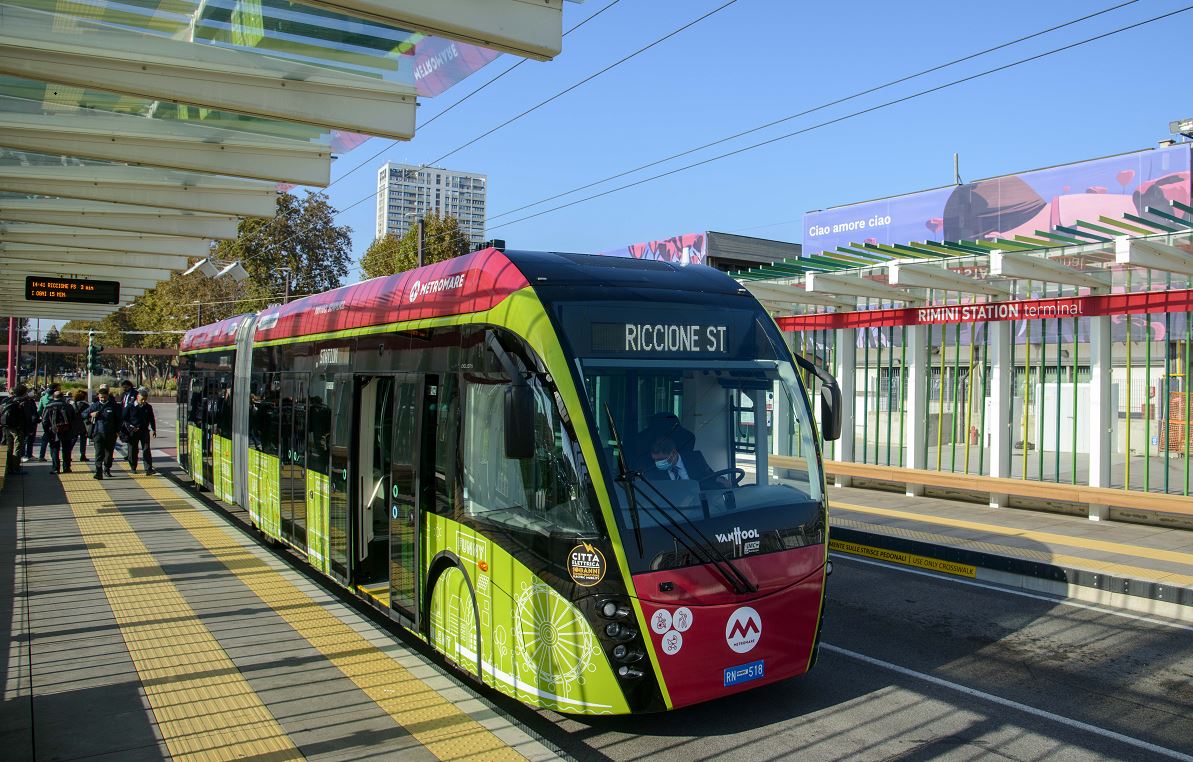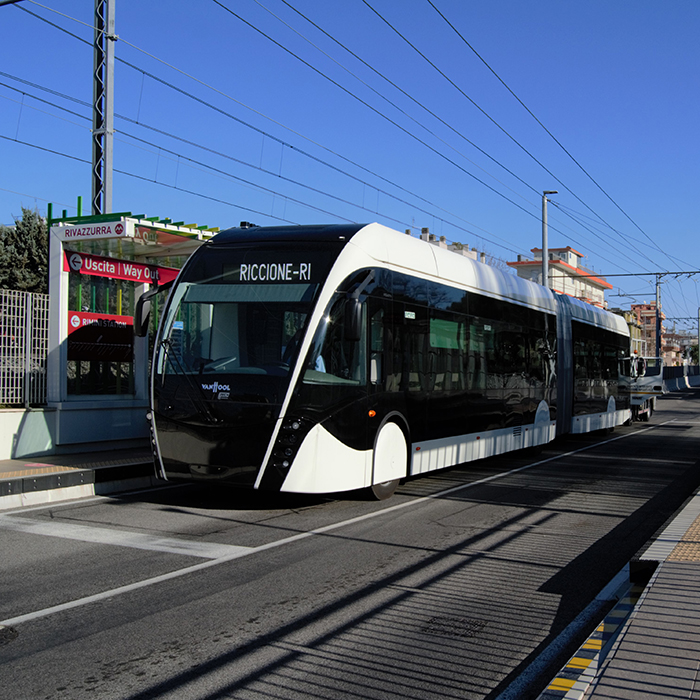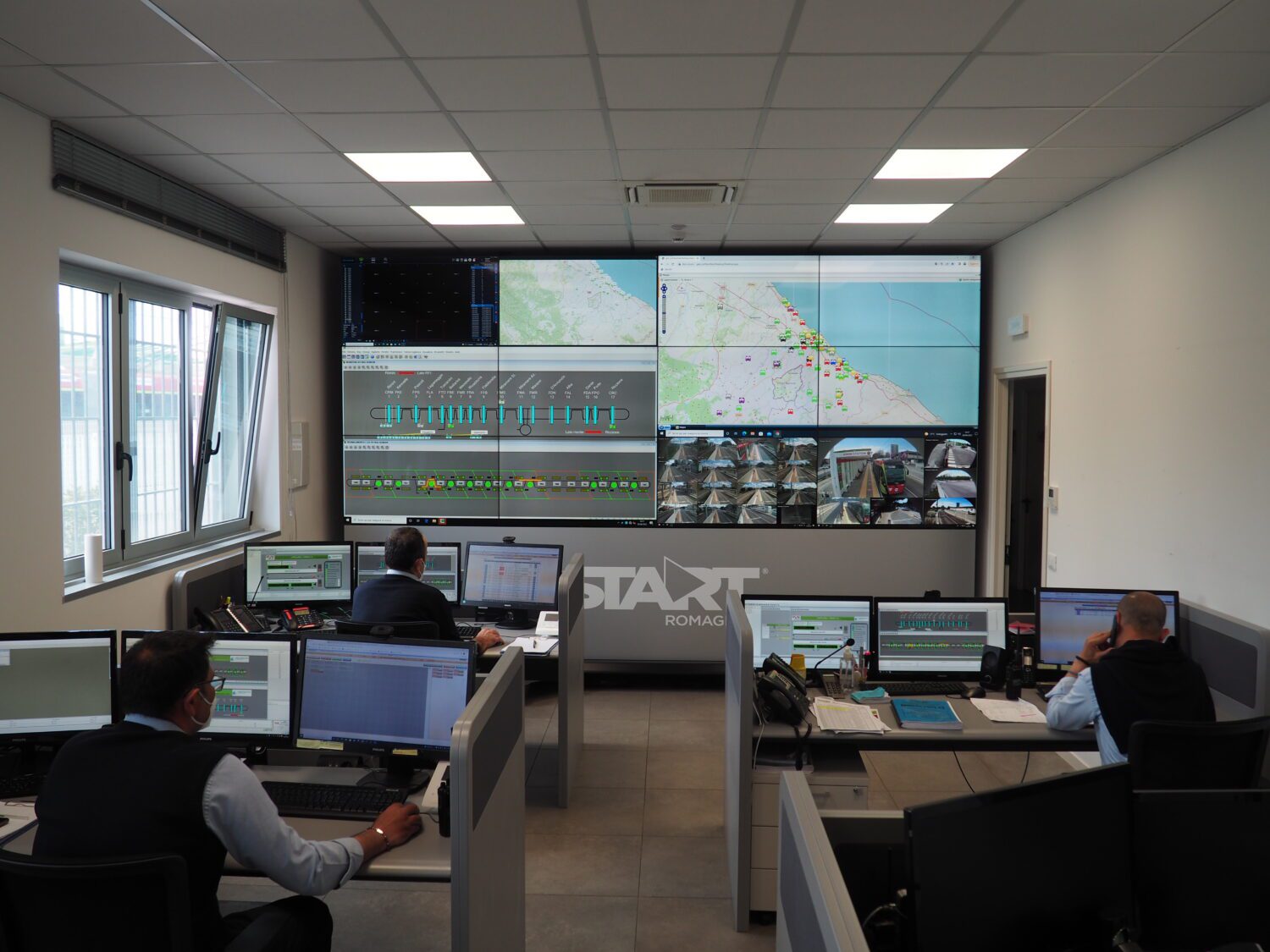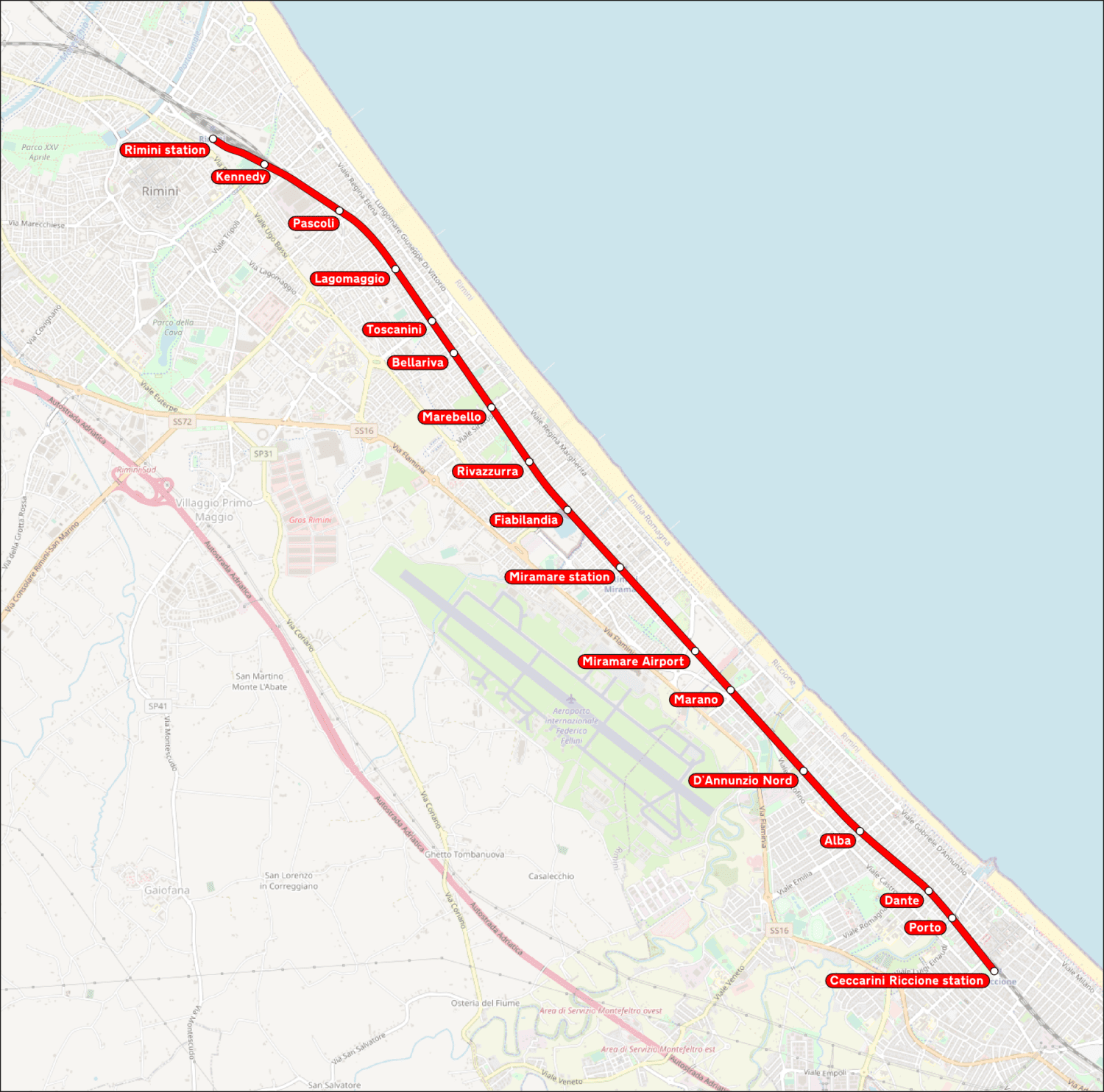
Advanced technologies for operational efficiency and better passenger experience: Interview Start Romagna
18/03/2024

As one of its demo sites, the eBRT2030 project will support Rimini in advancing the ‘MetroMare’ BRT line, which runs along the Emilia-Romagna coastline. We spoke to Eleonora Mauri from Start Romagna about the demo: what technologies will be tested, how will this benefit the passengers, and what will the future extended BRT line look like?

The “MetroMare” BRT line has been an important part of sustainable mobility along the Emilia-Romagna coastline for many years. How will the eBRT2030 demo advance the line?
The project aims to achieve several key objectives. Firstly, it seeks to transform surveillance from passive to an “active” security system capable of detecting unauthorized presence and immediately sending an alert to the operations center. A second objective focuses on the dynamic reshaping of the service, adjusting planning to real needs and enhancing dynamic information to the public through real-time passenger counting.
Furthermore, the project focuses on the predictive maintenance of trolleybuses and batteries through remotely controlled digital systems to constantly monitor efficiency status. This enables efficient scheduling of maintenance activities. Finally, we aim to address cybersecurity and ensure business continuity, in addition to creating a hub for fully electric journeys.
What are the changes you hope to see?
Participation in the eBRT2030 project will bring a series of advancements and positive changes for Start Romagna. Among these, an improvement in operational efficiency is expected through the adoption of advanced technologies, along with an enhancement of services offered to passengers. The implementation of innovative solutions will enable Start Romagna to position itself as a leader in providing sustainable local public transportation services.
What are the roles of the partners in the demo?
Start Romagna has forged crucial partnerships with the University of Bologna (Unibo) and EnelX for the eBRT project, demonstrating a strong commitment to innovation and sustainability in local public transportation. Unibo contributes to research and development of advanced technologies for eBRT, bringing a high-level perspective to defining solutions for sustainable mobility. The collaboration accelerates progress by integrating theoretical foundations into the project. EnelX manages the supply of charging solutions for electric vehicles in the eBRT2030 project, significantly contributing to carbon emission reduction. This partnership highlights the importance of involving academic and technological partners in addressing sustainable mobility challenges.



After the eBRT2030 demo, the BRT line will be further extended with more stops. What is the timeline here?
The eBRT line will be extended through the creation of a protected and reserved infrastructure along a route of approximately 4,2 km, connecting Rimini Station to Rimini Fiera. Six intermediate stations will be constructed between the two terminals, with an estimated travel time of 9 minutes and a service frequency of 5 minutes. Regarding implementation, construction will start in the summer of 2024. The roadmap outlines the completion of the infrastructure by June 2026, adhering to the timelines established by the NEXT GENERATION EU.
Before the opening of the MetroMare BRT line, the city saw some pushback from the public. For the future expansion of the BRT line, do you expect the same challenges?
It is possible that, during the future expansion of the BRT line, challenges like those encountered before the opening of the first section of the Metromare may arise. These challenges could include concerns from the local community regarding changes to bus stops or environmental impact. Effective communication with the community, public participation, and consideration of residents’ concerns may be crucial in mitigating these challenges and ensuring the success of the BRT line expansion. Active involvement of local stakeholders will contribute to creating greater awareness and acceptance of the project.